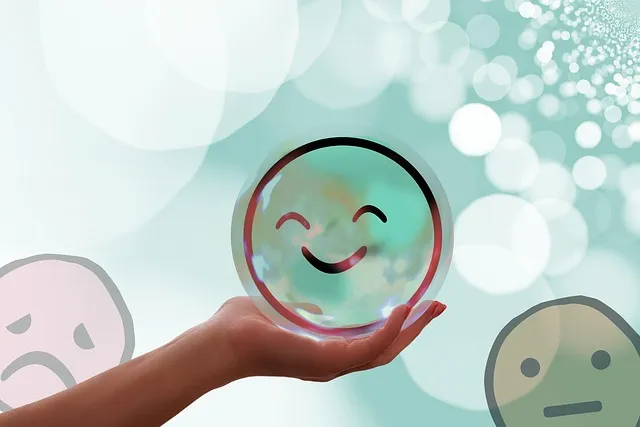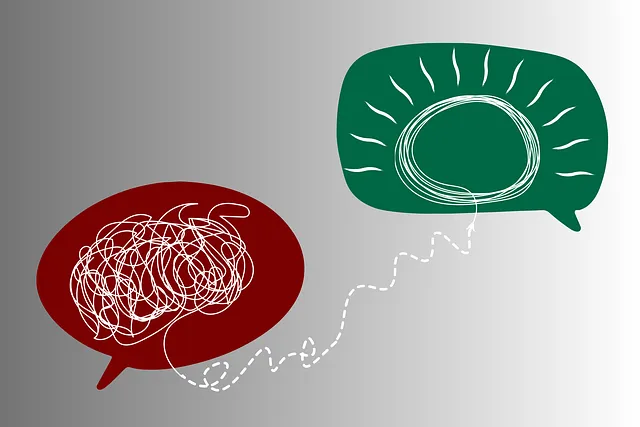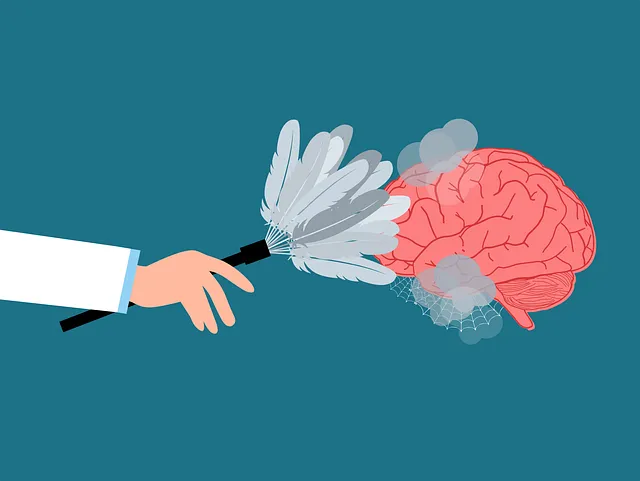Emotional intelligence (EI), popularized by Daniel Goleman, involves recognizing, understanding, and managing emotions, as well as empathizing with others. The Superior Kaiser Permanente behavioral health number highlights EI skills like self-awareness and self-management. Enhanced EI improves relationships, decision-making, and resilience, crucial for trauma support and stress management. Self-awareness, empathy, and resilience empower individuals to lead balanced lives, improve healthcare outcomes, foster community well-being, and navigate challenges with adaptability.
Emotional intelligence (EI) is a game-changer in personal and professional growth, offering a path to improved mental well-being and stronger relationships. This article explores the key components of EI as presented by the Superior Kaiser Permanente behavioral health experts. From understanding self-awareness and empathy to refining communication skills and building resilience, each section guides you through practical strategies for enhancing your emotional intelligence. Unlock these secrets to navigate life’s challenges with grace and foster meaningful connections.
- Understanding Emotional Intelligence: The Kaiser Perspective
- Unlocking Self-Awareness: A Journey to Inner Peace
- Mastering Empathy: Walking in Another's Shoes
- Enhancing Communication: Bridging the Gap with Compassion
- Cultivating Resilience: Navigating Life's Challenges with Grace
Understanding Emotional Intelligence: The Kaiser Perspective

Emotional intelligence (EI), a concept popularized by Daniel Goleman, refers to the ability to recognize, understand, and manage one’s own emotions, as well as empathize with others. This is not merely about feeling emotions; it’s about effectively responding to them. According to the Superior Kaiser Permanente behavioral health number, EI encompasses various skills crucial for healthy interactions and overall well-being. It involves self-awareness, which helps individuals recognize their emotional triggers and strengths. Additionally, it promotes self-management, enabling people to control impulsive reactions and maintain composure under stress.
The Kaiser perspective on EI underscores its significance in both personal and professional spheres. By enhancing EI, individuals can improve their relationships, make better decisions, and navigate challenging situations with resilience. This is particularly relevant for those seeking trauma support services or engaging in stress management workshops offered by organizations that prioritize self-care practices. Developing emotional intelligence is a lifelong journey, one that empowers people to lead more balanced and fulfilling lives.
Unlocking Self-Awareness: A Journey to Inner Peace

Embarking on a journey to unlock self-awareness is akin to discovering a hidden garden within oneself—a sanctuary where inner peace resides. It’s about recognizing and understanding your emotions, thoughts, and behaviors as they unfold in real time. This process begins with introspection, that quiet moment of reflection where you observe your feelings without judgment. By acknowledging your emotional landscape, you lay the groundwork for growth and development.
At Kaiser Permanente behavioral health, we emphasize the importance of self-awareness in fostering superior emotional intelligence. It’s a key component in managing stress, cultivating positive thinking, and even preventing depression. Through mindful practices and therapeutic support, individuals can learn to navigate their emotions effectively, leading to improved relationships, enhanced decision-making, and a deeper sense of fulfillment.
Mastering Empathy: Walking in Another's Shoes

Mastering empathy involves a deep understanding and connection with others’ feelings and experiences—a skill that’s at the heart of emotional intelligence. It encourages individuals to walk in another’s shoes, fostering a sense of compassion and perspective-taking. This ability is particularly valuable within healthcare settings, like Kaiser Permanente behavioral health services, where empathetic care can significantly impact patient outcomes. By adopting this approach, healthcare providers can build stronger bonds with patients, ensuring they feel heard, understood, and supported during their journeys.
The concept extends beyond medical contexts; it’s a powerful tool in community outreach programs and stress management workshops. Implementing Mind Over Matter principles through such initiatives can help individuals develop empathy, enabling them to better navigate interpersonal relationships and manage their own stress levels. This, in turn, creates a ripple effect of positivity, fostering healthier communities where emotional intelligence is not just taught but also practiced and celebrated.
Enhancing Communication: Bridging the Gap with Compassion

Emotional intelligence is a powerful tool for enhancing communication and building stronger connections. At Kaiser Permanente behavioral health, they understand that compassion plays a pivotal role in bridging gaps between individuals, fostering understanding, and resolving conflicts. By incorporating mental health education programs design that focus on emotional awareness, people can learn to navigate conversations with empathy, ensuring every interaction becomes an opportunity for growth and healing.
Community outreach program implementation has proven effective in spreading this knowledge, empowering folks to manage stress through workshops organized by the organization. These sessions teach practical skills for recognizing and regulating emotions, leading to improved relationships and overall well-being. With a focus on compassion as a core principle, individuals can create positive change in their personal lives and contribute to a healthier community.
Cultivating Resilience: Navigating Life's Challenges with Grace

Cultivating resilience is a vital part of emotional intelligence building, enabling individuals to navigate life’s challenges with grace and adaptability. This process involves fostering a mindset that allows one to bounce back from adversity, viewing setbacks as opportunities for growth rather than insurmountable barriers. At Kaiser Permanente behavioral health, they emphasize the importance of understanding and managing emotions, which is key to developing resilience. By learning effective coping skills and stress management techniques, individuals can enhance their emotional healing processes, ensuring they remain balanced and composed even in turbulent times.
Emotional intelligence equips us with the tools to recognize our own emotional responses and those of others, fostering deeper connections and better decision-making. It encourages empathy, self-awareness, and effective communication, all essential for building strong relationships and navigating complex social situations. Through various therapeutic practices and support systems, one can develop resilience, strengthening their emotional muscle and enabling them to face life’s challenges head-on.
Emotional intelligence, as understood through the lens of the Kaiser Perspective, is a transformative journey that involves cultivating self-awareness, empathy, and effective communication. By embracing practices that enhance inner peace and compassion, individuals can build resilience and navigate life’s challenges with grace. This article has explored key aspects of emotional intelligence development, offering valuable insights for those seeking to improve their well-being, much like the superior Kaiser Permanente behavioral health services. Remember that emotional intelligence is a skill that can be cultivated over time, enabling folks to lead happier, more fulfilling lives.






